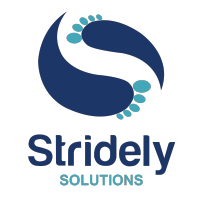The Introduction:
Our client is among the top companies serving in the e-commerce sector. From customizable merchandise to the standard clothes, they encompass all. Launched in the year 2000, they haven’t failed to meet their customer’s expectations. In fact, they have grown from serving a city to customers in three different nations. Their user count has increased dramatically and the growth figures unmapped. One thing that keeps them ahead of the customers is innovation. Be it incorporating a web counterpart of their offline store or an app for that matter, our client has always invested in digital growth.
Challenges
Staying at the forefront of innovation, our client was on the path of incorporating Chatbots for their sales process. The fact that they have a huge customer base, connecting with them or guiding them manually was turning out to be a major obstacle. This is where they thought a Chatbot would be of help.
But that doesn’t imply the road to Chatbot integration being easy. While the decision was taken in a couple of days, what followed next was a lot more intense.
Integrating the bot is a good thing but it requires a lot of work in the back-end. That is to say, there are tons of challenges that come along with the integration process.
Train Chatbots
The first thing that takes most of the time is training Chatbots. Since we are to emulate human behavior, it is important that the Chatbots are thoroughly trained to act and react in all probable situations.
Diverse User Expectations
Where training Chatbots is a thing, the ability to meet varying user expectations is another. It is known that different people have different views and they might think entirely different. To have a system that can adhere to all of the versions of a being is extremely complicated and hence, acts as a major challenge.
Synchronize data
With such huge outreach, multiple offices, and terabytes of data, synchronization takes its toll. Engineers struggle a lot to ensure that all of the data is added to the system and the bot has access, as and when needed.
Get rid of biased data
As said, the system has data in enormous amounts. But the data isn’t clean. It has biased data as well. If, part of the system, biased data disrupts the quality of decisions made. Hence, you must get rid of the same before incorporating them into the bot.
The Solution
Facing the aforementioned challenges, there was a sheer need to find a way out. In a general sense, the solution would include:
Build NLP Models
Developing an understanding of human language. Starting with its structure to the contextual meaning, every aspect must be understood well in advance. In addition to the above, it is necessary to get information related to sentiment analysis, generate support for different languages, and further lead to the development of NLP models. An important thing to note here is that before the creation of the models, they must be thoroughly trained to avoid any issues.
Pattern Identification
To build NLP models is the first step towards the solution. There’s a lot more to be done with the next thing being the identification of pattern. As and when the model is into action, it must be capable of finding out patterns that best defines a situation. Hence, the need to build a program that can effectively leverage ML classification algorithms. This narrows down space while making it easier for the bot to understand what the user actually means.
Response Generator
Another thing, part of the solution, is a candidate response generator. This would be given the responsibility to perform all of the calculations as per the user request. The main aim here is to find out the best response. You can either user APIs or even take help from humans to build real-time responses for the system.
Data Synchronization
Last, you must design and build a platform that can easily link the technology with the enterprise application. Also, the platform would be capable of synchronizing data across all of the channels.
Case Details
Our client was aware of the problems and the challenges part of the integration process. They reached out to us seeking help. Initially, our team connected with them one-to-one to understand the entire problem at hand. Our team visited their premises and did a dry run of the system to find the bottlenecks and sketch out what the existing solution lacks.
After studying the problem, we come up with the objectives that cloud the entire project. The primary ones include:
- To guide the customers and assist them through the buying process.
- Help customers close sales using the Chatbots in a way offering seamless customer experience.
- Mend ways to level up the cross-selling and Up-Selling opportunities.
- Feed significant announcements through the bots. Raise notifications alerts etc.
- Generate a lead score by leveraging the data and assessing it to find valuable leads.
- Stay with customers throughout the sales process.
- Gather data and generate feedback from customers
Keeping all of the above as the guiding parameters, our team started the process of building the tool. Development was one of the stages followed by testing and integration. Our team took immense care of the deployment process and ensured that the final result was as per the expectations of the client.
Benefits
- Facilitate Seamless e-Communication
- 50% increase in customer engagement
- 30% higher quality lead generation from direct AI visits
- 25% better lead qualification and nurturing Power BI Dashboard
- Continuous improvement over time with machine learning
Key Statistics
- Increase conversion rate by 50%.
- Improved customer satisfaction rate by 75%.
- Automates 70% of the selling process.
Future Prospects
Integration of Chatbots is the first step towards inducing automation in the line of business operations. As part of the industry that never sleeps, there are many more opportunities that can be added to the system. For instance, connecting the Chatbots with the CRM system will further open the doorway to total automation. True that this is the start but soon we might see additional modifications, adding to the efficiency and performance of the store.


